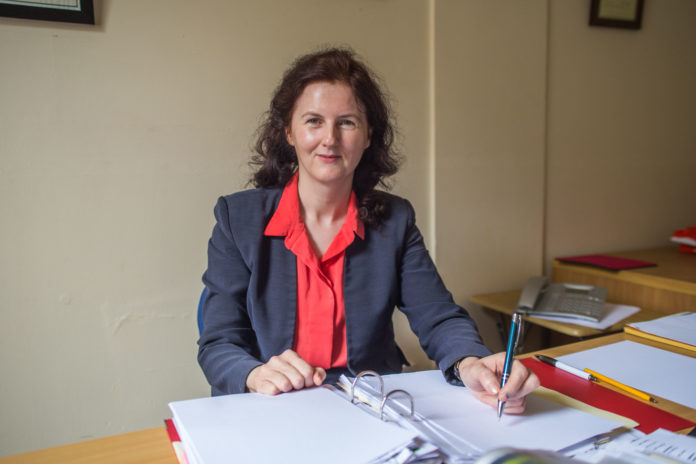
DISAPPOINTMENT has been expressed locally following Justice Michael Twomey’s High Court ruling in Irish Cement’s favour for a licence to burn 90,000 tonnes of waste at their Limerick plant.
The ruling now means that waste comprising of whole tyres with metal components, animal waste tissue, manure, animal faeces, paint, adhesives, plastics, fly ash, waste refuse, and mine waste can be incinerated at the Castlemungret facility.
The Irish Cement site is located on the suburbs of Limerick City West and is predominantly a residential area with a number of primary and secondary schools nearby.
Limerick solicitor and President of Environmental Trust Ireland Michelle Hayes claims that the High Court ruling will have very serious adverse impacts on human health and the environment.
Ms Hayes, who took the High Court action against the Environmental Protection Agency’s initial decision, maintains that the emissions from the cement factory will discharge heavy metals, sulphur dioxide, nitrogen oxide, dioxins, furans, and other chemicals into the air in high concentrations and will have an adverse effect.
She deemed this week’s judgement as “disappointing and perplexing” after taking the action against the Mungret-based company.
Speaking to the Limerick Post this week, Ms Hayes said: “Following seven days of hearing in the High Court from May 10 to May 19, judgment was reserved in the Irish Cement incinerator case and has now been delivered”.
“The case was transferred to the Commercial division of the High Court on the application of Irish Cement, even though I was an individual taking the case on environmental and health grounds, which are not commercial factors. This automatically made the case much more expensive to run which seriously prejudices an individual.”
Ms Hayes explained that as an individual, an environmentalist and a taxpayer, she took this case at great personal risk because it had such massive ramifications for the health and environment of the people of Limerick.
“In the process, I encountered numerous hurdles and hostility from certain individuals which I had to overcome. This is a public interest matter with massive consequence for the environment and human health and I am very disappointed by the decision.
“As a committed environmentalist, I wish to acknowledge the expert evidence of the many University Professors and academics given on my behalf in this case in both environmental and health issues, which supported my conclusions and the pleadings raised by me in this case.
“Unfortunately, this expert evidence was not considered by the Court or even referred to in its decision, which relied instead on the unverified and uncorroborated data produced by non-independent witnesses retained by Irish Cement. All issued raised by me in Court were pleaded by me at the commencement of the proceedings. I note that certain statements and issues were attributed to me incorrectly in the judgment, which were not raised by me.
“The rule of law and the Aarhus Convention requires meaningful access to justice and to the Courts on environmental matters, which this judgment appears to restrict. It sends out a very negative signal to those committed to pursuing public interest environmental matters through the Courts, although such rights are protected under European law and the Aarhus Convention and are regularly enforced by the European Court of Justice.”
The Environmental Trust Ireland President says she remains steadfast in her belief that the health of the people of Limerick is paramount, and considers the environmental issues she raised as of critical importance in this era of biodiversity crisis and climate change.
“It is an enormous task for one individual to stand against such powerful adversaries as the State, the Minister for the Environment, Eamon Ryan, the EPA, the Attorney General and a multinational conglomerate.
“I would like to thank the people of Limerick, Tipperary and Clare who sent me their good wishes and moral support, which I very much appreciate. Indeed, I wish to thank everybody who sent me their good wishes. I will consider the judgment with my legal team before deciding on the next step.”
In response, a spokesperson for Irish Cement said, “As the matter remains under legal process, it would not be appropriate for Irish Cement to comment at this time.”










